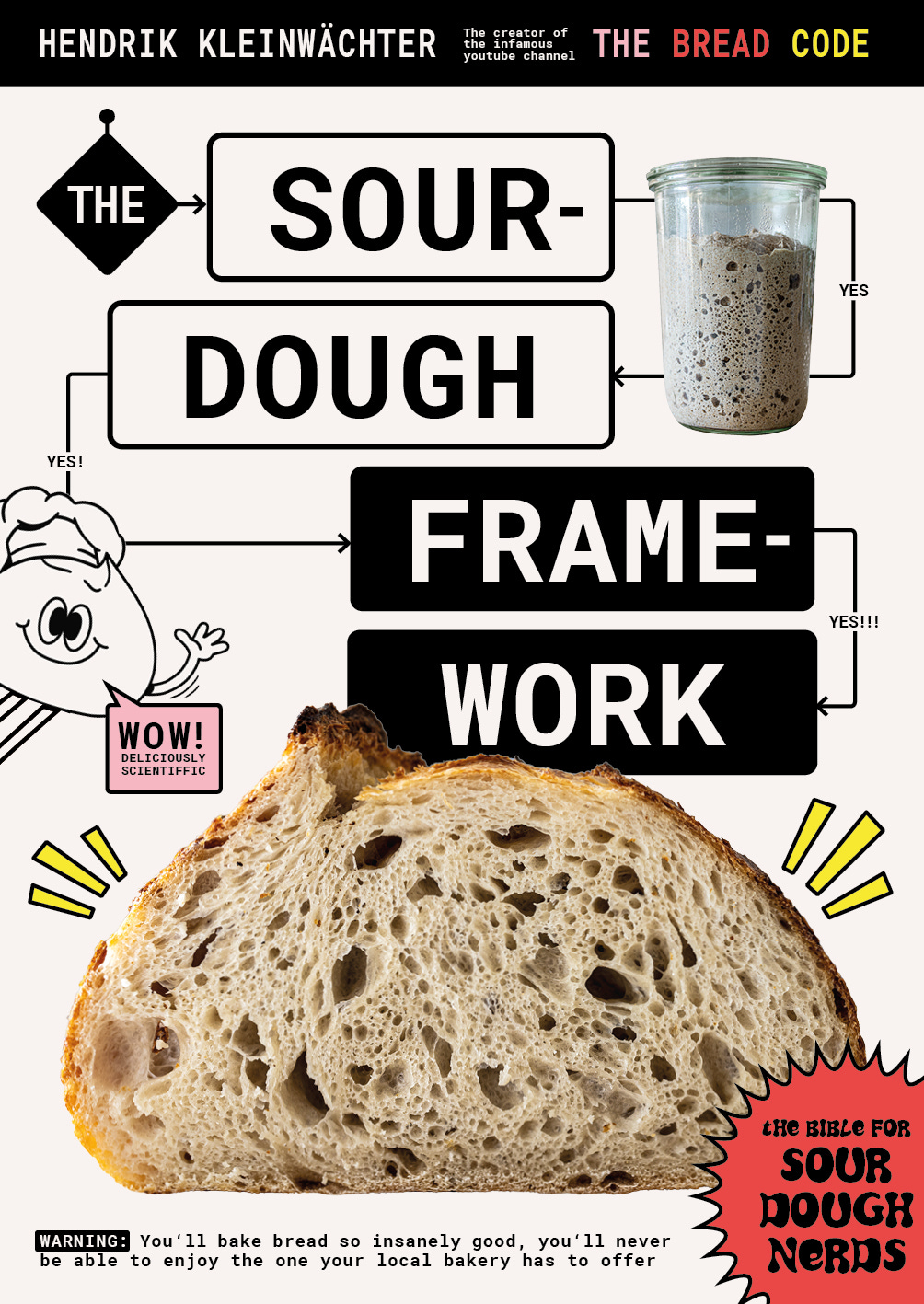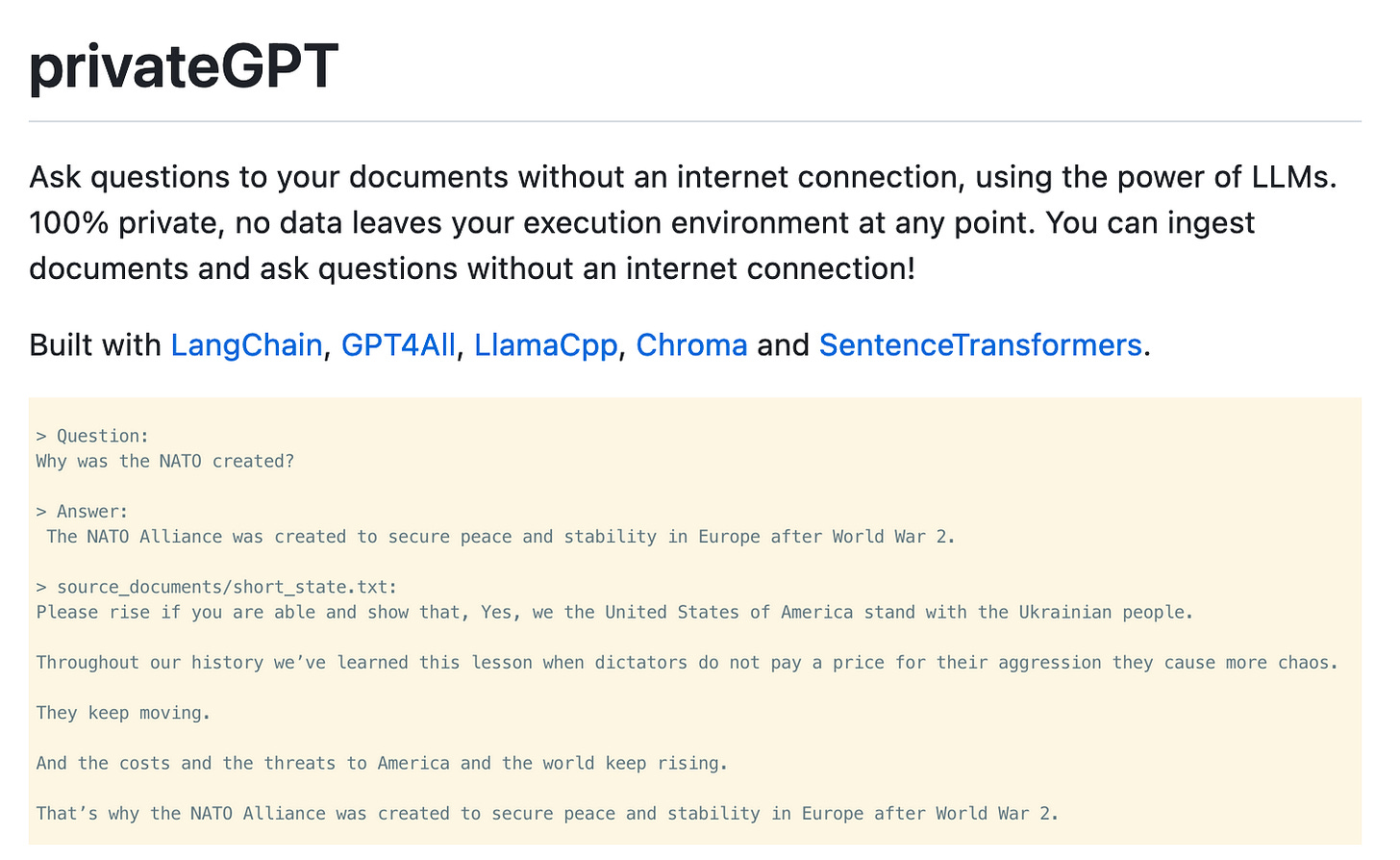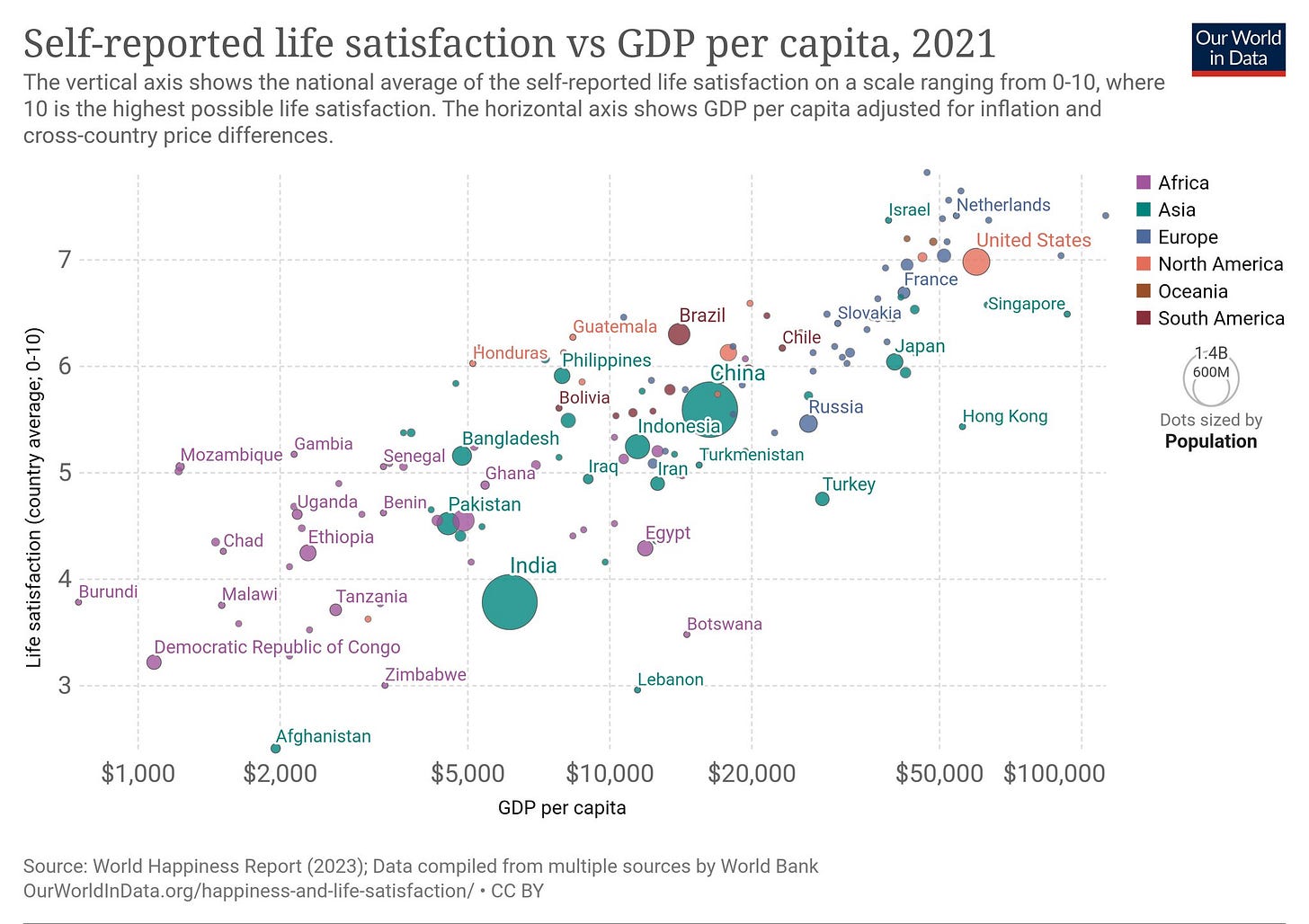Private GPT, cleaning air to prevent the next pandemic & sourdough bread
CC#61 - What it means to be Human in the Age of AI,Prompt Engineering & there is always another Gate to pass through
Hey there and welcome to ✨ CuratedCuriosity - a bi-weekly newsletter delivering inspiration from all over the internet to the notoriously curious.
Things I Enjoyed Reading.
💨 First clean water, now clean air
In early 19 century England a lot of people used to die due to disease transmitted through water - until John Snow (not the one from GoT) famously found out about this and the government subsequently started to put systems in place to increase water quality. Now the question: why don’t we do the same with our indoor air? Putting filters etc. in place could prevent (or at least significantly) slow down the next pandemic and thereby an investment like this would easily pay for itself.
I’m not sure I emphasised this enough: if a country installed all the measures I mentioned (ventilation, filtration, antibacterial UV light & monitoring), it could more or less end respiratory disease in that country. A world in which clean air measures are as widespread as clean water measures are in rich countries is a world which has effectively ended respiratory disease everywhere. It’s just totally possible to stop worrying about a relative catching a cold, or the flu, or pneumonia.
That’s a huge deal: ignoring pandemics, even halving deaths from respiratory disease means saving hundreds of thousands of lives every year. Not ignoring pandemics, the numbers are of course much starker. It’s hard to quantify how bad truly worst-case pandemics could be, given that they could have civilisation-spanning consequences. But these basic measures would help stop or slow many of them.
💭 AI Can Change What it Means to be Human
AI is gonna change the labour market, I think we all accepted that. But what is the fact that e.g. you can easily have a chatbot that mimics your deceased loved one gonna do to us on psychological level?
First, chess computers were developed and evaluated based on their ability to measure up to humans.
Later, they became incomparable to humans.
Now, chess players study chess with computers, are inspired by the computers' peculiar and superior ways of playing, take the form of computers, and you hear the compliment that someone plays like a computer.
In the initial example, with the woman who created a chatbot representation of her ex-boyfriend, the chatbot is first evaluated on how much it resembles and can be mistaken for the ex-boyfriend.
Then, the ex-boyfriend chatbot becomes its own. It turns out to be able to do something else and incomparable to the ex-boyfriend. It is always more considerate, always knows you better, understands you better, is never tired and unresponsive, preoccupied with itself and its own problems, absent-minded or unreasonable. It comforts you better than your father, gives you a greater sense of love than your partner, and provides more meaningful phrases to live by and understand yourself in light of than the priest and the philosopher.
💬 Prompt Engineering vs. Blind Prompting
How can you optimize prompts for language models to minimize “wrong”, unwanted or too creative answers? A systematic approach to get the most of your prompts.
"Prompt Engineering" emerged from the growth of language models to describe the process of applying prompting to effectively extract information from language models, typically for use in real-world applications.
A lot of people who claim to be doing prompt engineering today are actually just blind prompting.1 "Blind Prompting" is a term I am using to describe the method of creating prompts with a crude trial-and-error approach paired with minimal or no testing and a very surface level knowedge of prompting. Blind prompting is not prompt engineering.
There is also a lot of skepticism about whether prompt engineering can truly be described as "engineering" or if it's just "witchcraft" spouted by hype-chasers. I think in most cases the skepticism is rooted in the fact that a lot of tweets and blog posts I've seen claiming to be on prompt engineering are really at best a thin layer above blind prompting.
In this blog post, I will make the argument that prompt engineering is a real skill that can be developed based on real experimental methodologies.
Food for Thought.
📊 What professions will be affected most by AI? Interesting visualisation of a recent research paper on this topic by the Washington post.
😰 So much on the current state of AI alignment… More in this tweet.
🙃 Some evidence against the “persistent myth of the ‘happy poor’”. Seen on twitter.
Random Stuff.
👵👴 According to the American Time Use Survey, the older people get, the more likely they are to say that they are living the best possible life.

🥖 If you are bread nerd like me - good news for you! There is now a Github repository / ebook with detailed information on how to make sourdough!

🤖 This is so cool - curious if it can get close to GPT performance… Definitely planning on playing around with this and report back

Personal Update.
Next episode of our podcast series is out - this time featuring one of my former colleagues, Terne, who shares some of her insights on biased natural language models as well as how to take care of you mental health while doing a PhD.
Went to see a roller derby game in Copenhagen - can definitely recommend! If anyone in CPH is up to go again some time, let me know ;)
Currently reading “Tomorrow, tomorrow and tomorrow” (big recommendation). Loved this quote:
“It occurred to Sadie: She had thought after having had that big success* that she would never fail again. She had thought she had arrived. But life was always arriving. There was always another gate to pass through. (Until, of course there wasn’t). She walked through another gate. What was a gate anyway? A doorway she thought. A portal. The possibility of a different world. The possibility that you might walk through the door and reinvent yourself as something better than you had been before.”
* the original quote refers here to a successful computer game the main character made, but I took the liberty to rephrase to make it understandable for someone not reading the book






